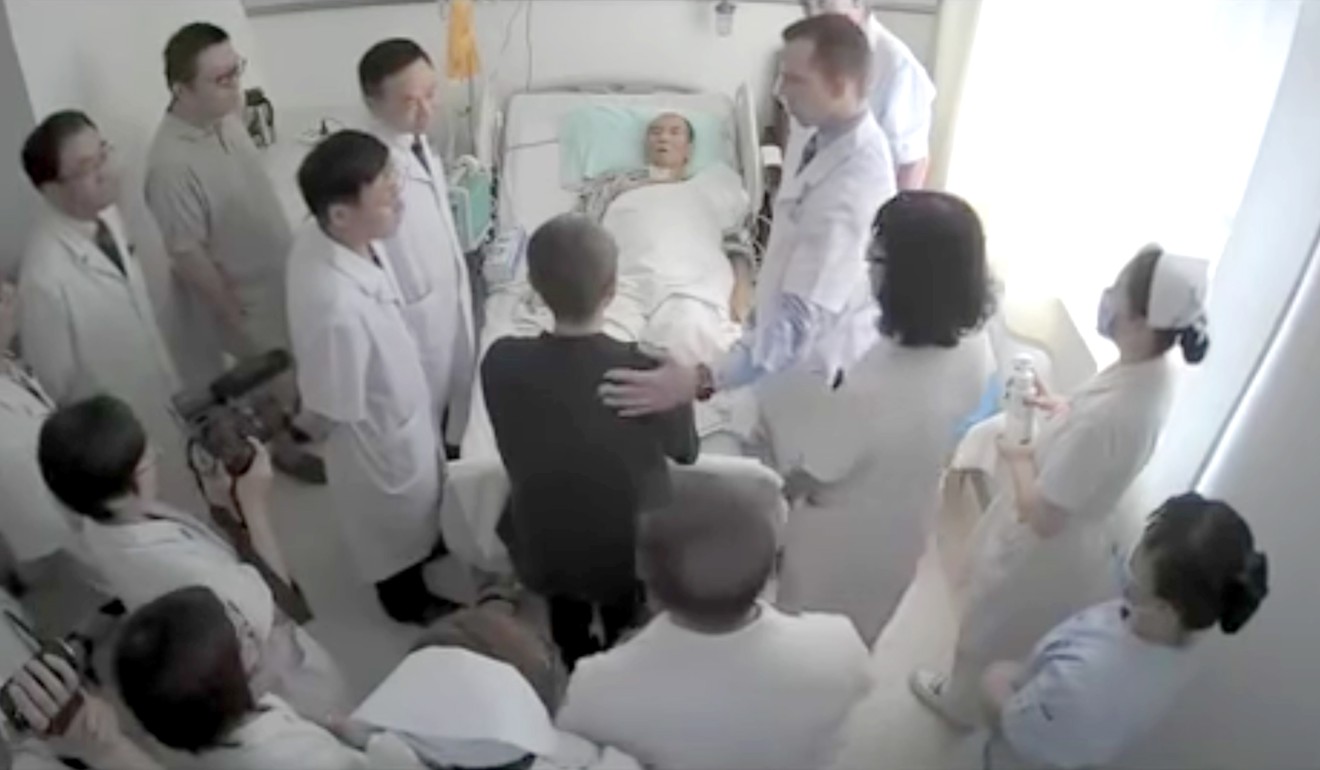
Chinese dissident Liu Xiaobo very near to death, hospital says
Family members sign documents acknowledging his condition, but refuse procedure for assisted breathing, according to officials
Ailing Nobel Peace Prize laureate Liu Xiaobo is very close to death and his family had signed documents acknowledging his dire condition, the hospital treating him announced on Wednesday afternoon.
Doctors had asked the family whether Liu could be given tracheal intubation but the request was rejected, the hospital said.
Earlier, the hospital said Liu’s condition had worsened and he was being resuscitated as his organs failed.
However, a family member said Liu’s condition had improved in the morning. Friends also said security in the area around the First Hospital of China Medical University in Shenyang, northeastern Liaoning province, had been stepped up, while Liu’s friends and family were under increased surveillance.
The 61-year-old dissident, who has late-stage liver cancer, is on dialysis and is at the resuscitation stage, the hospital said in a statement. “[He remains] in septic shock and his organ functions continue to fail,” the statement said.
But the Hong Kong-based Information Centre for Human Rights and Democracy said one of Liu’s relatives had told them Liu was conscious and in a better condition after receiving dialysis.
It was not possible to confirm the information on Wednesday amid heightened security around the hospital and increased surveillance of Liu’s family members to prevent them from talking to his friends and the media.
Some of Liu’s friends said they were contacted by police on Tuesday. “We have been told that Liu won’t be allowed to go overseas and we are not allowed to go to Shenyang. We can’t take interviews either,” said one of Liu’s friends, who did not want to give their name.
Meanwhile, the state-run Global Times tabloid issued another scathing editorial on Wednesday, describing Western appeals to have Liu transferred overseas for treatment as “hypocritical”.
“Despite their loud rhetoric, Western forces are not persuasive in their reasoning. What they care about is not Liu’s treatment, but transferring him abroad. This is a political charade,” the article said.
It also hit out at the German embassy in Beijing for its statement on Monday criticising the Shenyang hospital for releasing unauthorised video of two foreign doctors, one of them German, as they visited Liu. The German statement also said the country’s security services were steering Liu’s treatment rather than the doctors.

In one of the video clips, a German cancer specialist is seen praising the Chinese medical team for their efforts.
“Why does China need trust from the German side in treating Liu, which is absolutely a domestic affair?” the editorial said.
Liu was arrested in December 2008 for his part in drafting pro-democracy manifesto “Charter 08”. He was sentenced to 11 years’ jail on subversion charges but was awarded the Nobel Peace Prize in 2010.
The jailed dissident was represented by an empty chair at the award ceremony in Norway.
Liu was granted medical parole last month after being diagnosed with advanced liver cancer at the end of May.
He was reunited with his wife, Liu Xia, at the hospital for the first time in the eight years since he was jailed. Liu’s friends have said he wanted to be treated in Germany – and for his wife to go with him – and was still pressing to leave the country for treatment, even though he may not have long to live.
Germany, the United States, Britain and other countries have appealed for Liu to be treated at a location of his choice, but so far the Chinese authorities have resisted the entreaties.

